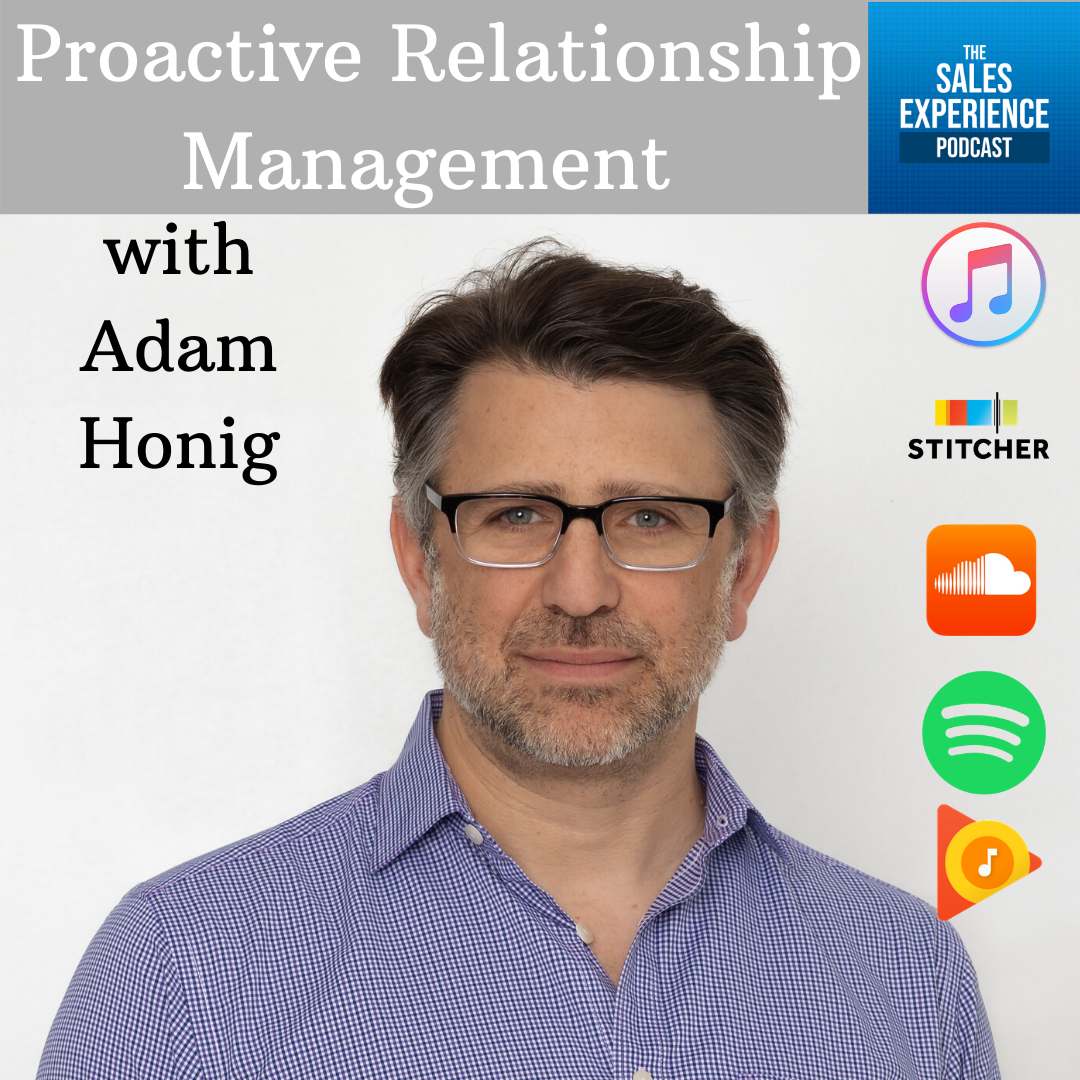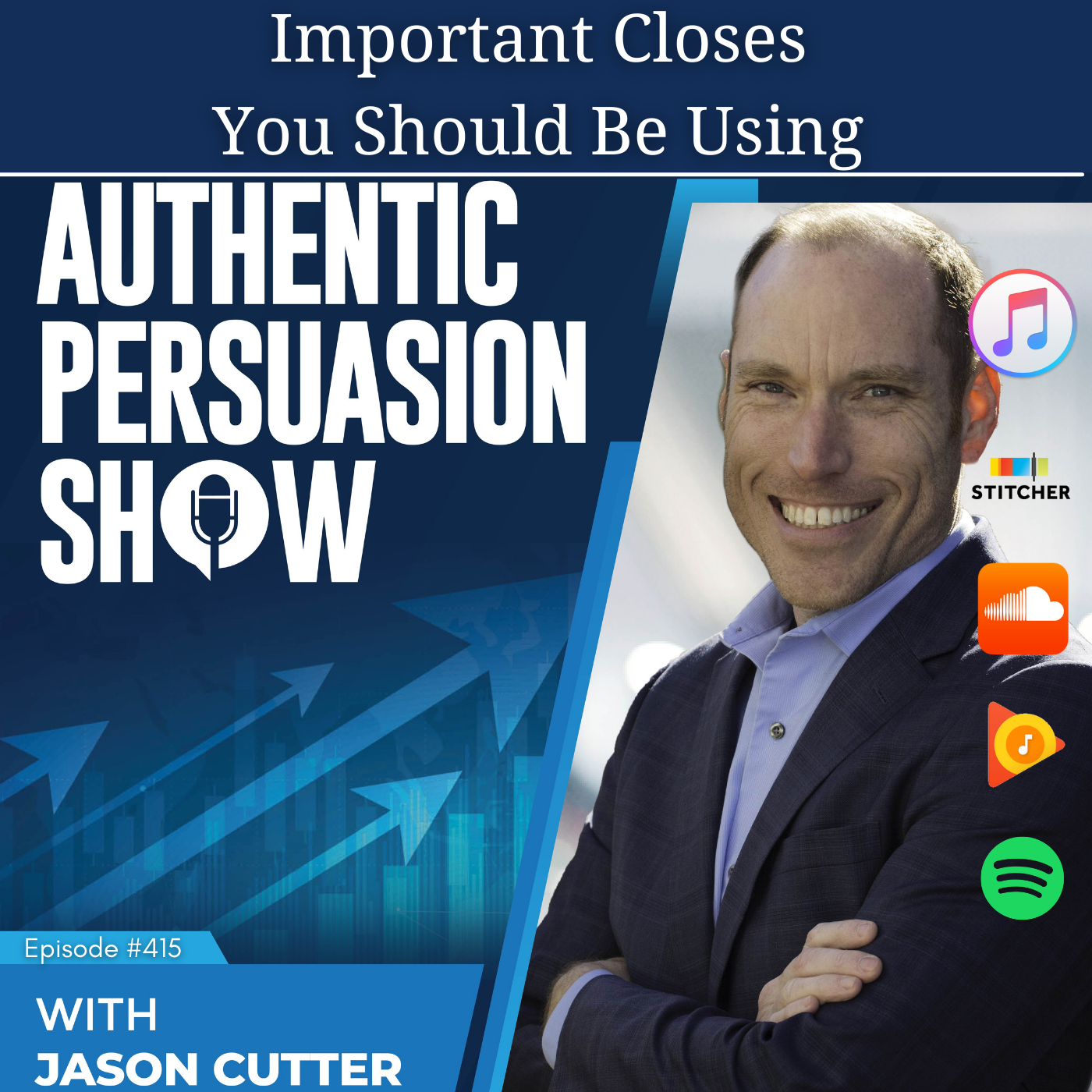[00:00:00] Speaker A: Welcome to the authentic Persuasion show.
[00:00:02] Speaker B: On this episode I want to replay part of a previous show. Maybe you heard the original full length episode and this could be a great refresher and reminder. Or maybe this is your first time hearing this content and the timing could be just right to help you leverage authentic persuasion today in your role, no matter what. Here's to your success.
[00:00:21] Speaker A: This is the authentic persuasion show and one of the big keys, and we'll talk about it in a few weeks when I talk about overcoming objections, which if you want that sooner, I have an ebook. It's available on Amazon for a Kindle. It's called a sales consultant's Guide to overcoming objections and I am happy to send it to you. I'd love to share it with anyone watching this or listening to this on the podcast on the replay. By the way, if you haven't yet subscribed to the authentic Persuasion show and you can catch this as a replay, and then you can check that out there and listen to it while you're doing other activities, take notes. But if you want that overcoming objectives ebook, that PDF, email me.
[email protected] just put in there overcoming objections ebook. Feel free to reference the show because it's always fun to hear where people found out about that and I'll send it to you. I just want to help you. But in a few weeks I'm going to talk about the strategy. When someone raises issues, why they raise these issues, why they would bring up fees and rates and terms and contract and all of those things in advance instead of waiting. I'll talk about that in a few weeks. It's also in the ebook, but the psychology, what's triggering that and then how to handle it and how to move them forward, that's the key, is what you want to do is you want to make sure you focus on the fact that you don't know, you're not sure. It depends whatever that looks like for you, and then keep moving forward. And what I also do, and it's important to say, I don't know. It depends on many different factors like X, Y and Z. And let me go through this process and ask you some questions and then I will tell you what that will be, right. Let them know. It's not that you're trying to avoid it, it's not that you're just trying to play that game in sales, like the first person to mention a number loses or you're not just playing some kind of game with them. You truly don't know. And once you know, you will tell them why. Because you're a professional. And I think that is the key, is to treat it like such. Right. Like to be a professional.
I'm just looking through the chats here.
Nishant, thanks for joining. I'm so glad that you're here. And I'm looking at. So Jacob, Russell Martinez mentioned presenting the value, which I think is so good. When you're presenting the value, then people will see that over their other concerns, which, again, that's where we're going to get to when we talk about overcoming objections. But you've got to focus on presenting the value first and not making it about those other things. Fundamentally, we all know, like, if the value is high enough and it's worth it, all the other things are secondary. So that's the big thing. Prescription before diagnosis is malpractice. You've got to diagnose first, prescribe you are in control. You are driving the bus in this conversation. For a lot of people in sales, they struggle with that because they're worried about upsetting this prospective client or they haven't talked to somebody all day. They finally got somebody to talk to them, they're moving forward. The last thing they want to do is mess that up. They don't want to upset that person. They don't want to lose this chance, right. Their one chance today to close a deal or this hour or this month or this quarter, whatever that looks like. And so what happens is they just let that other person run it because they're so worried. And again, I'm not going to labor on this point too much, but again, it's just like courtship. I've had friends in the past and I've been that person myself, so single and so desperate that anybody talks to them or myself, then it's like, just don't want to let go, right? I finally got someone to talk to me, but that doesn't work, right? That isn't attractive. That lack of confidence doesn't work. And same thing in sales. You've got to own the process. You've got to know who you are. You've got to know what you're doing, where you're going, where you're taking them. That's why I've been giving you this authentic persuasion pathway, because that is your roadmap. That is the process where you are now in control of where you want to go. Start here, you're going to end here with this person. If it's a good fit and you're the one driving the bus. Now, it doesn't mean you have to be controlling, just means you're in control. You're the professional. Just like somebody doesn't walk into the doctor's office and tell the doctor what to do. Do this test, do that. They're going to be like, no, I have my process. I'm in control. I am the certified medical professional that's held to a higher standard. And I took an oath. And if I do this wrong, it's my butt on the line. Right. It's my malpractice lawsuit or issues. And so, no, it's up to me. And I'm running the show here. And so that's the attitude you have to take in the stance you, you.
![[737] Understanding Objections](https://episodes.castos.com/salesexperiencepodcast/images/1687294/c1a-4d8w-zo7rdpmjh70z-ynu9bz.png)


